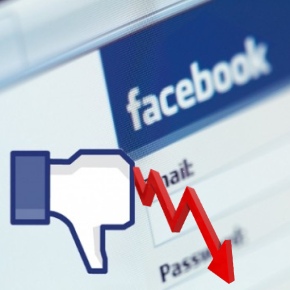
s0r0s
New York, NY
Male, 32
Day Trading: is it a game? A skill? A science? Instinct? Luck? I have no idea, but I do it for a living. Day traders employ a mix of speed, instinct, guts, knowledge and emotional intelligence to trade millions of dollars with a keystroke. The faint of heart need not apply. Ask me anything.
That's a great question. I think, weighing the totality of what I know and what I have seen, that it helps to be educated ... but not that much. At my firm the most successful guys are weighted more toward the former Ivy league types, but there are plenty of people who have almost no book smarts at all that have been successful. That said, I don't think that a top degree or a top education is what makes those traders successful. I just think that people that are driven to succeed, who are willing to work hard and who generally have good work habits are more likely to have been driven to succeed in both school and trading. If there is a high school dropout who is just as intelligent and driven as a Harvard MBA , I don't think you'd be able to predict who the better trader would be. However, I do think that you are more likely to find a smart, driven person who has a Harvard MBA than is a high school drop out. In other words, I think predominantly the best traders are well educated, but I don't think they are successful BECAUSE they are well educated.
Domestic Equities. Any stock traded in the US on a major exchange.
It is very hard to come up with a hard "average." The problem is that at my firm and in day-trading in general the structure is very bottom heavy, skewing the averages. Not only that, but the market changes drastically from year to year. In 2008, a monkey could have made a lot of money day trading... the same was true during the dotcom boom. On the other hand, the years following the dotcom boom and the recent financial crisis have been very tough. Day-trading depends on volume and volatility. The ideal trading environment is under a very confident or very panicky market. Uneasy trading markets are extremely difficult. The market since the financial crisis of '08 has been very uneasy. With all that said, let me try to give some parameters. I am going to put all these numbers into Net Profits before the firm takes its share (the amount a trader takes home will depend on the % of his profits he gets to keep, which changes for everyone). That's the amount of money a trader has made on the market after he pays commissions and any taxes or other fees. To get an idea of what someone takes home, typically beginners keep 35% of their profits and advanced traders keep 60%+. Intermediates will fall somewhere in between depending on their success. A firm with 100 traders might have 30 first year traders ("beginners"), 30 people who are still finding their way in their 2nd or 3rd years ("intermediate") and about 40 guys who have made it and are consistently profitable ("advanced"). Of the new hires, break-even might be the average in a bad trading year like this year, whereas in a good year you could see the average first year trader make $100k. Of the intermediates, there is a wide range. Some traders are breaking through and can make $400-$500k, others are barely treading water. Id say the average intermediate is making $100k (keep in mind, that a lot of the failing traders have left before they reach the intermediate levels) in a bad market and significantly more in a good market, maybe $250k. The advanced guys are all doing really well. The best of the best traders at my firm will make over $1M in a bad year and can absolutely crush good years. That might be a handful of guys though. Most advanced traders are more likely to be making $300-400k in bad years and $700k+ in good years.
Nope. Though certainly being likeable and/or helpful might help someone get a little more leeway in tough times.
Court Reporter
 If your special keyboard lets you type 200+ words per minute, why doesn't everyone use them?
If your special keyboard lets you type 200+ words per minute, why doesn't everyone use them?
iPhone & iPad Technician
 Do you think tablets are just a fad?
Do you think tablets are just a fad?
Nightclub Promoter
 How do you decide who gets into your club?
How do you decide who gets into your club?
Speed. Focus. Consistency. High Emotional Quotient. I think day trading for the most part comes down to processing information quickly, rather than accurately. Combine the ability to process quickly with someone who can also be unemotional focused and consistent, and chances are you will have a very good day trader.
I can honestly say I don't know of an accurate portrayal in movies about daytrading. There was a season of Wall Street Warriors that followed a day trading firm that probably gives you the best idea of what day trading is. I think it was Season 4 and you may be able to find episodes online.
Generally, yes, you have to close out each of your trades every day. More successful and experienced traders are allowed to keep "overnights" but even they will only do that on a very small percentage of their trades. Nobody who starts out keeps trades overnight and even those who do do it rarely. Day trader, for the most part, really means DAY trader. Of course, there are exceptions to the rule, and there are a few people that trade on a much longer term basis. But they are exceptions.
Well, they are both in finance and they both buy and sell securities, but after that there isn't too much in common. The most basic way I can explain the difference is this: Day traders often make hundreds of trades a day based on order flow. Hedge fund guys are trying to find angles/value/market inefficiencies and may spend weeks or months picking their investments. Thats oversimplifying it, but what day traders and hedge funds do really aren't very similar, so its a tough comparison.
It all depends on a trader's previous success. IF you've shown you can make $50k in a month, then losing $50k in a month is no big deal. As long as your losses stay within proportion to your gains, you won't be fired. But if a trader is making $10k a month and all the sudden drops $100k pretty fast and doesn't look like he's able to turn it around, he is in trouble. It’s also in his best interests to just quit, since he probably won't see a paycheck for a long time anyway.
Hi Jen, Please see my answer above to the question, "What stops successful traders from leaving to become independent traders (or starting their own firm), instead of sharing their profits with a firm?"
If we define luck as random chance, then 0% of it is luck. If we want to include variance in the definition of luck than there is plenty. Generally daytraders are making so many trades in a day that the sample size gets pretty high, pretty fast, and it’s next to impossible for any consistent success to be based on luck. The same few guys are the best traders at the firm every year, month and even week. You can certainly make bad trades and luck out and make money on it and you can make good trades and lose on them, but make enough bad trades or good trades and eventually you will earn what your combined decisions suggest you should earn. Daytraders are trading hundreds of thousands of shares a day and so reversion to the mean happens fairly quickly. There is definitely a lot of variance, but very little "luck" as strictly defined.
There are two female traders and over 100 male traders. I don't think this has anything to do with the hiring practices of the firm. Day trading does not seem to be a business that attracts many females.
Not a lot. It’s kind of sink or swim. There is some structured teaching (once a week classes) when you begin, and you are given a trainer when you start. But that’s about it. How much instruction/training you get depends largely on who you are placed with as a trainer.
#1 - Risk -If things go wrong, your own money is not at risk (you may lose your job, but at least you won't go broke). Also, it's much easier psychologically to trade someone else's money. #2 - Capital/leverage - legit trading firms will give their good traders a lot more money to trade with than they'd ever be willing or able to trade on their own. #3 - Technology - trading firms can pay for better technology, have professional IT people on hand, develop new technology, etc. The average independent trader is going to have a VERY tough time keeping up with technological developments on his own. Also at a trading firm, one trader might find a new way to take advantage of new technology and spread it to the rest of the floor. There are lots of shared ideas, which brings me to the next one: #4 - Opportunity to work as part of a team. There is a lot of shared information on a trading floor. You would lose that if you moved on your own. That said, lots of people have gone off on their own, and I'm sure many of them have been successful. Still, all the successful traders at my firm stayed on. I guess it makes sense: those guys that understand risk/reward and just want to focus on trading (not the entreprenuerial stuff) are more likely to stay on and are also more likely to be successful.
Yes and Yes. Every individual trader is going to have his own style and his own strategies, but firms are going to have some styles and strategies that tend to work better for them, that they are able to teach better, and that their trading program is built around. Its only natural. There are trading "shops" that are consistently successful and make a lot of money. Other shops don't do nearly as well. The quality of recruits, training, and especially in today's trading world, technology, make a huge difference in the success of different firms.
I can tell you that I don't see much of it. Some guys take a supplement called "Jack3d," which is a stimulant used for focus. There is lots of coffee and tea around. But I have not seen any drugs or anything abusive. In fact, I saw more adderall and ritalin usage in college than I see on the trading floor. That doesn't mean it doesn't happen, but I think it does mean that drugs are not a part of the normal culture. People do talk about how popular drugs were "back in the day," but I don't see it around now.
I trade 100% my employer's money, which I think is pretty rare. I think at most purely day trading places, traders are expected to put up some percentage of money. At the more successful firms the company will provide all the capital, but as I said, this is rare.
Emotionally fulfilling? Does not apply. The token answer is that traders add liquidity to the market, which, I tend to believe is true. Neither Mom and Pop investors nor big institutions are going to be able to buy or sell shares unless someone is on the other side of that trade. That’s what traders offer: someone to take the other side of the trade for you. That might be about it.
Beginners will typically make or lose no more than $3k in a day. Intermediate traders often have 5 figure days and rarely lose more than $5k. Advanced traders can make $50k in a day and lose more like $10-20k. I've heard of traders making millions in a day and also of losing hundreds of thousands.
No. In a bad market, no one is profitable for at least a few months. Most don't really turn the corner for 7-9 months. If after a year you are not profitable, the company will pretty much give up on you. In a great market, as I said, a monkey can make a profit, so there are plenty of people who are profitable right away.
I assume you mean from a process standpoint? Because I can think of very few things that are more clear than that facebook was not priced correctly. From a process standpoint, I can't pinpoint anything the bankers did incorrectly, except maybe underestimate the sophistication of the market. This isn't 2001 anymore. The market generally demands that companies show earnings. I played around a little, trying to buy a few bounces, to mixed results. I didn't have a "play" on Facebook, if that's what you mean. IPO's typically are not my game. I'm sure plenty of traders crushed it though.
-OR-
 Login with Facebook
Login with Facebook (max 20 characters - letters, numbers, and underscores only. Note that your username is private, and you have the option to choose an alias when asking questions or hosting a Q&A.)
(A valid e-mail address is required. Your e-mail will not be shared with anyone.)
(min 5 characters)
By checking this box, you acknowledge that you have read and agree to Jobstr.com’s Terms and Privacy Policy.
-OR-
 Register with Facebook
Register with Facebook(Don't worry: you'll be able to choose an alias when asking questions or hosting a Q&A.)